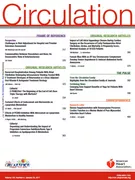Cardiac insufficiency (heart muscle weakness) in Germany is one of the most frequent causes of death. As a result of this illness the heart is no longer able to supply the body with enough blood and oxygen. The prognosis for such patients has been relatively poor up to now. However, new results in research may provide hope.
"With sports therapy, persons affected can clearly improve their prognosis," explains Prof. Dr. Martin Halle, medical director of the Center for Prevention and Sports Medicine. In a study with nine European centers - lead by the team of Prof. Halle - investigated which training form affects an injured heart and how.
The result: Physical training does not lead - as previously accepted - to a damaging enlargement of the ventricle. "On the contrary, we could observe even a reduction of the left ventricle and with it an improvement in the pumping function," says Prof. Halle. The lowest rate of clinical event and, together with this, greatest improvement appeared in those who had carried out moderate training. "Moderate training means about 100 steps per minute or 3,000 steps in 30 minutes. Higher intensities should be advised against," explains the qualified medical doctor.
Publication with Impact Factor 17
Now, the results of the study were published by the high-ranked, reviewed magazine "Circulation". The journal of the American Heart Association has an Impact Factor of 17.
Trigger for the heart muscle weakness can be, for example, a cardiac infarction or an elevated blood pressure for many years. With this constellation, patients recognize a limited loading capacity, often brought about through a backup of fluids in the lungs or aggregation of fluids in the legs and here, above all, in the lower legs.
Medicinal therapy and heart pacemaker instead of training
"Up to now, medicinal therapy was completely in the foreground for the treatment of cardiac insufficiency. This was additionally complemented by re-synchronization, a pacemaker function on the heart for the optimization of contraction of the heart muscle, as well as by an implantation of a defibrillator which should prevent sudden heart failure in the event of heart rhythm disturbances," says Halle.
Physical training was strictly forbidden long-term for the patients, because it was feared thereby that the pumping function of the heart would become worse. However, during the past years, studies have already shown that complementary physical training has positive effects on the loading capacity and reduces the readmission to a clinic because of a deterioration in the symptomatology (re-hospitalization rate).
Study of nine European centers with a total of 261 patients
However: Which dose of sport has the best effects? In the European cardiological guidelines it has been defined up to now that moderate endurance training should be carried out daily. Studies over the past years have shown, on the other hand, that shorter units with higher intensity have even better effects on the pumping function of the heart with cardiac insufficiency. Accordingly, it is suggested here that an interval training has the most optimal effects even up to an intensity of 90 to 95 percent of the maximum heart frequency in exchange with a moderate load of about 60 percent.
These recommendations were now tested by a consortium of nine European centers on a larger group of 261 patients. For this purpose, these were distributed by chance into three groups: a control group, a training group with moderate intensity as well as the third group which completed an interval training. For all three groups, a controlled training was carried out for a period of three months and, in addition, a recommendation were given to continue the intervention for another nine months.
Moderate training with the best effects
The group with moderate training demonstrated the lowest rate of clinical events. Those with intensive training (interval training) as well as the control group, in contrast, had a higher rate of hospital readmission. "All together, this study corroborates that physical training with moderate intensity is to be recommended for all patients with systolic cardiac insufficiency. Higher intensities should be advised against," Halle summarizes. Advantages of an individual sports therapy for heart patients
- Relief for the heart
- Strengthening of the heart through improvement of the heart muscle function
- Dilation of the blood vessels and development of new blood vessels
- Lowering of elevated blood pressure and of the blood lipid concentration
- Improvement in the maximum oxygen resorption by the blood
- Lowering of the risk for cardiac and vascular emergencies like cardiac infarctions and strokes
- Elevation of the respiratory volume
- Elevation of the loading capacity and efficiency

